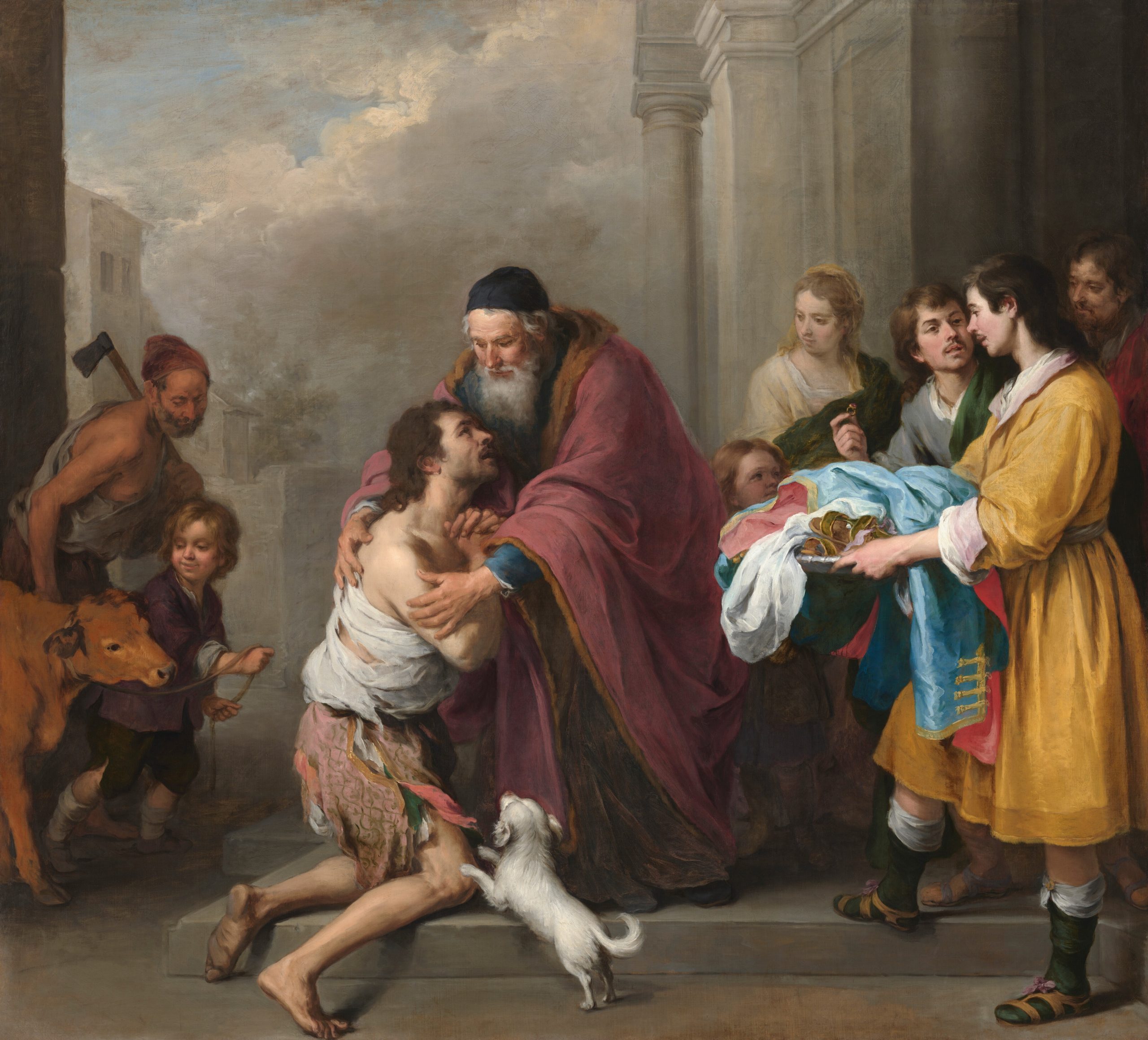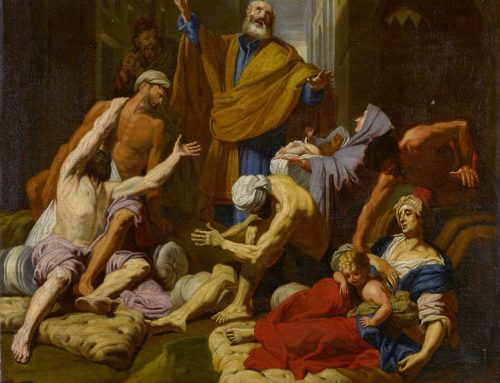
Is the Holy Spirit always indwelling in one’s soul, even when one has rejected God and committed mortal sin? In other words, once we are saved by the grace of the Holy Spirit dwelling in our souls, are we always saved?
To answer this question, we first must define mortal sin. The Catechism of the Catholic Church, (CCC), par. 1852 teaches, based on Sacred Scripture, “Mortal sin destroys charity in the heart of man by a grave violation of God’s law; it turns man away from God, who is his ultimate end and his beatitude, by preferring an inferior good to him” [1]
Also, CCC par. 1861 teaches, “Mortal sin is a radical possibility of human freedom, as is love itself. It results in the loss of charity and the privation of sanctifying grace.” [2] We can see from this definition that mortal sin must be 1.) grave 2.) committed with full knowledge and 3.) done with complete consent or done deliberately. We can see also that mortal sin turns man away from God.
Next, we must define justification, how we are made righteous or ‘saved’. The clearest teaching comes from the Council of Trent [3]:
“[Justification is] one means of expressing the doctrine of salvation in the New Testament. It can refer to a divine action as well as a spiritual process. As an action, justification is the moment when God makes righteous the one who believes in Christ and establishes him or her in a covenant relationship with himself. As a process, justification is the growth in righteousness and grace that takes place in the believer who embraces the demands of the gospel and yields himself or herself to the leading of the Spirit.”
This twofold definition of justification is 1.) an action wherein God establishes a soul in a covenant relationship, and 2.) a process of growth that takes place within the believer. Catholics can answer the Protestants’ question of are you saved, thusly, “I was saved, I am being saved, and I hope to be saved.” That’s both an action and a process.
Looking further at the teachings from the Council of Trent, we can see the Church’s answer to the main topic in question: if one rejects God, one will indeed lose the Holy Spirit indwelling in the soul. Here is how the Church puts it in her own dogmatic words, “The grace by which we are justified may be lost and is lost through every mortal sin.” [4] This means that if one is deliberately and knowingly committing a grave (mortal) sin, one rejects the love of God, and the Holy Spirit does not dwell in the soul. By rejecting God, one has lost sanctifying grace, which is that grace that makes the soul holy and pleasing to God.
Upon what does the Church base its teaching? Sacred Scripture and Sacred Tradition! We find it explicitly in Scripture from the writings of St. Paul. He enumerates, along with unbelief, many other sins that exclude us from entering the Kingdom of Heaven. See Galatians 5:19-21. In his first letter to the Corinthians, St. Paul expresses the reality that he could lose his salvation (I Cor 9:24-27). In this text, St. Paul expresses that his faith journey is like that of a runner who could be disqualified for veering off course. St. Paul’s teachings about salvation are consistent with Christ’s words in Matthew 7:21-23, “Not everyone who says to me, ‘Lord, Lord,’ shall enter the kingdom of heaven, but he who does the will of my Father who is in heaven.” [5] Christ’s words make it clear that those who know He is Lord (those who are believers) can be excluded from the kingdom of heaven.
Sacred Tradition teaches that it is possible for one to lose salvation. Below are just a few quotes from The Early Church Fathers on this topic.
“And I hold, further, that such as have confessed and known this man to be Christ, yet who have gone back from some cause to the legal dispensation, and have denied that this man is Christ, and have repented not before death, shall by no means be saved” [6] – St. Justin Martyr.
“Those who do not obey him, being disinherited by him, have ceased to be his sons. Wherefore, they cannot receive his inheritance” [7] – St. Irenaeus.
“Yet to whom that is born and dies, is there not a necessity at some time to leave his country and to suffer the loss of his estate? But let not Christ be forsaken so that the loss of salvation and of an eternal home should be feared” [8] – St. Cyprian.
What’s the Good News then? Do we live in fear of losing our salvation? A resounding NO! The Good News is that God loves us and sent his Son to die so that we may live with Him in heaven. God gives us all 7 Sacraments as sources of grace to live a life pleasing to Him. In particular, He gives us the Sacrament of Confession, which restores grace when we fail to love God and neighbor.
Grace is a free gift of God. Despite the Fall and Original Sin, God truly and earnestly desires the salvation of all men. Because it’s a gift, we know that we do nothing to deserve it or get it. According to dogmatic teachings from the Council of Orange (529 AD), “all the baptized, if they are willing to labor faithfully, can and ought to accomplish with Christ’s help and cooperation what pertains to the salvation of their souls.” [9]
God never leaves us, but we can leave God. He respects our free will, our freedom to choose. He will never force Himself on someone who does not desire Him or who rejects Him. However, He waits for us, like the Father of the Prodigal Son, seeing us from ‘afar’, and running to greet us with open arms when we have turned away from Him.
____________________________________________________________________________________________________________________________________________________________________
1. Catholic Church, Catechism of the Catholic Church, 2nd Ed. (Vatican City: Libreria Editrice Vaticana, 1997), 454.
2. Ibid.
3. Council of Trent, “Decree on Justification”, Chapter 15 https://www.ewtn.com/catholicism/library/decree-concerning-justification.
4. Ibid.
5. The Holy Bible, Revised Standard Version; Second Catholic Edition. (San Francisco: Ignatius Press, 2006), Mt 7:21.
6. St. Justin Martyr (110-165), “Dialogue with Trypho”, Translated by Alexander Roberts and James Donaldson, Chapter 47.
7. St. Irenaeus, “Against Heresies”, (Book IV, Chapter 41) https://www.newadvent.org/fathers.
8. St. Cyprian, “Treatise 3”, https://www.newadvent.org/fathers.
9. https://www.ewtn.com/catholicism/library.





Leave A Comment